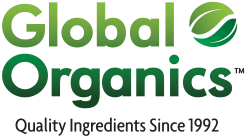Strengthening Organic Enforcement: What You Need to Know
01.05.2024 | Author: Global Organics | Category: Quality & Certifications, Company News
As we approach the imminent deadline of March 19, 2024, for the implementation of the USDA NOP Rule "Strengthening Organic Enforcement" (SOE), we want to ensure that our organic community is well-informed and prepared for the upcoming changes.
The National Organic Program (NOP) has recently introduced the Strengthening Organic Enforcement (SOE) rule. This rule is all about boosting the integrity of the organic supply chain, preventing sneaky organic fraud, and enhancing the traceability of organic ingredients and finished products.
Why was this rule needed, you ask? Well, with the ever-increasing complexity of our international supply chains, transparency has become a top priority. That's where the SOE rule steps in. It affects USDA accredited certifying agents, organic inspectors, producers, processors, traders, and exporters, ensuring that everyone plays by the organic rules.
So, what changes can you expect with the implementation of the SOE rule? For starters, there will be a significant reduction in uncertified entities in the organic supply chain. We'll also be saying goodbye to paper import certificates because, starting from March 19, 2024, the use of electronic NOP Import Certificates for all organic products imported into the U.S. will be mandatory. This will make oversight and traceability of imported organic products much more efficient and centralized. Implementing the NOP Import Certificate involves close collaboration with U.S. Customs and Border Protection (CBP) to help make the process as smooth as possible. You can now voluntarily upload organic import certificates into CBP's import system, the Automated Commercial Environment (ACE). By 2024, the NOP and CBP will have a fully dedicated and optimized import certificate module in ACE. These import certificates will be generated by accredited certifiers in the NOP's Organic Integrity Database (OID). Be aware that your imports and domestic supply chain will be impacted if they are currently managed by a third-party trading company lacking organic certification.
The SOE rule also encourages more businesses involved in the organic supply chain to get certified. That includes operations storing bulk or unpacked products, organic importers, and distributors in the US. Plus, organic certified operations will need to have a "fraud prevention plan" (FPP) as part of their Organic System Plan (OSP). Talk about keeping things legit!
Here at Global Organics, we're fully committed to supporting the SOE rule. We've already started asking our suppliers for NOP Import Certificates when placing orders for imports into the US, making it a condition of our purchase orders. We're also ensuring that our import and logistics teams, as well as our buyers, receive training provided by ECOCERT resources and the Fraud Prevention Academy. It's all about strengthening the entire supply chain. In fact, our logistic and import teams are even requesting carriers and carriers' brokers to provide a copy of their fraud prevention plan. We want to ensure that every step of the process is transparent and reliable.
As a certified US importer, exporter, and distributor of organic products, we take pride in our over 30 years of commitment to distributing high-quality organic goods in North America. We are poised and ready to assist you in the importation and distribution of your organic products well before the upcoming March deadline.
Please feel free to reach out to us promptly with any questions or concerns. We are here to support you during this transition period.
Want to create your own fraud prevention plan? Check out this link: https://foodfraudpreventionthinktank.com/food-fraud-prevention-academy/. And if you're curious to learn more about the new SOE rule, head over to https://usa.ecocert.com/NOP/Resources.
Thanks for being part of our organic community!


